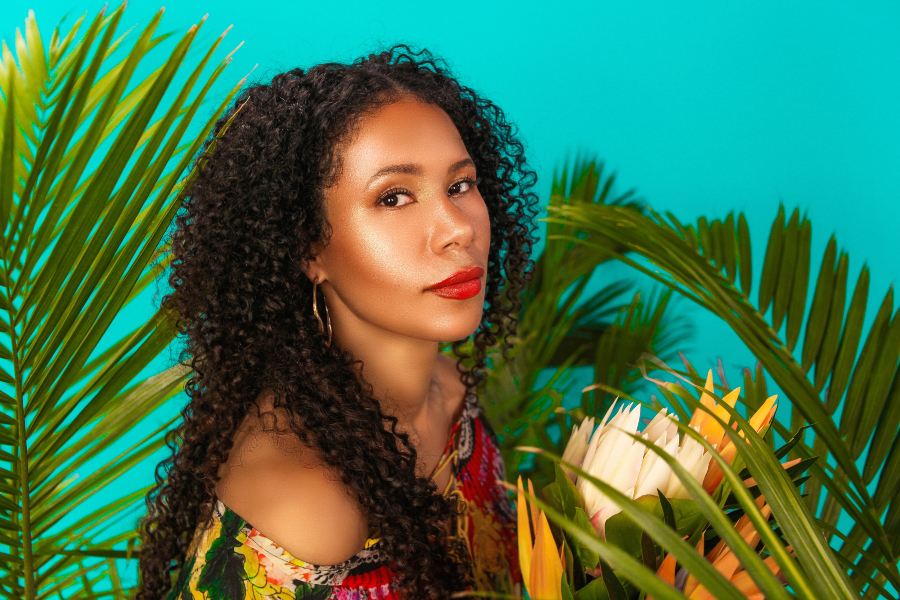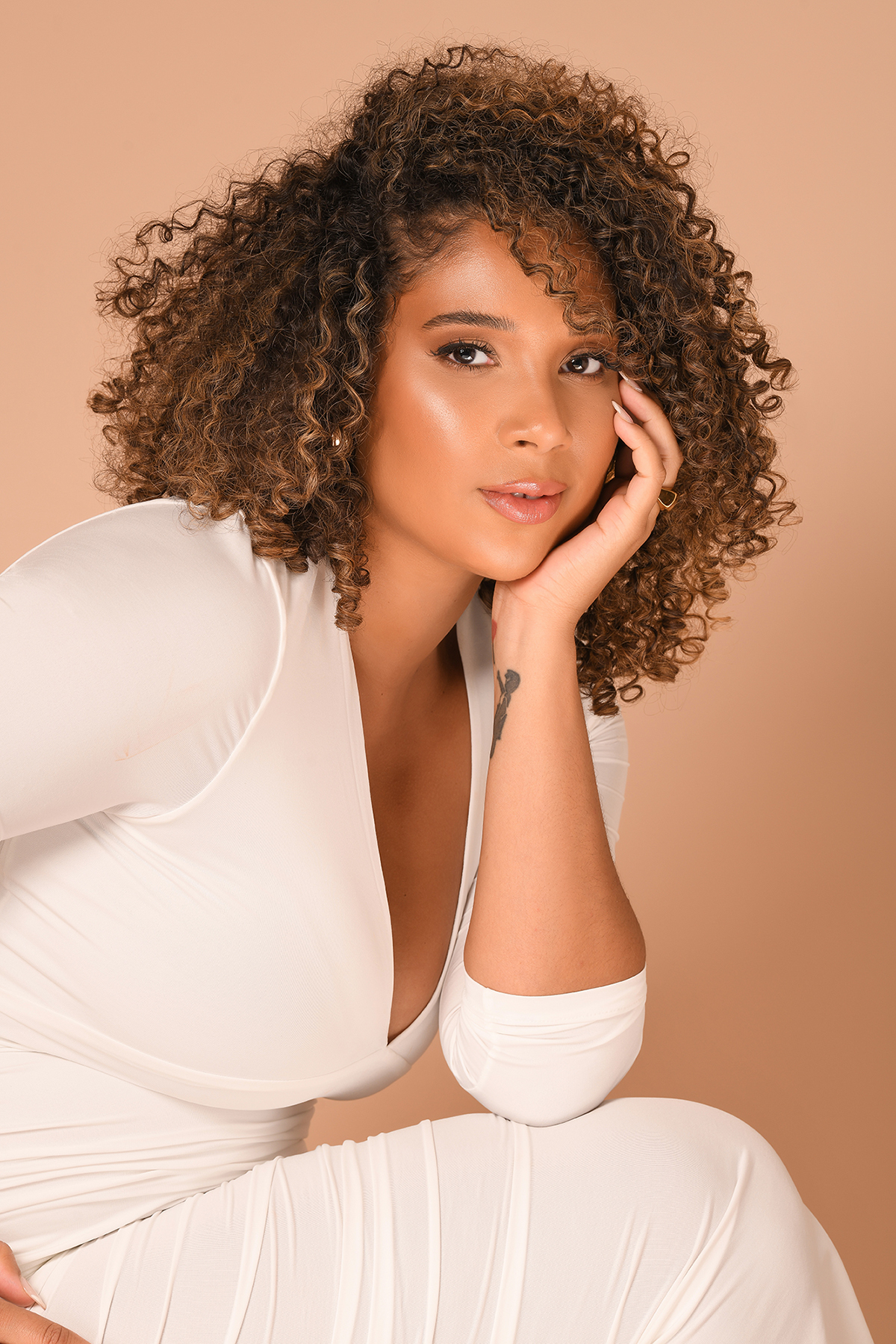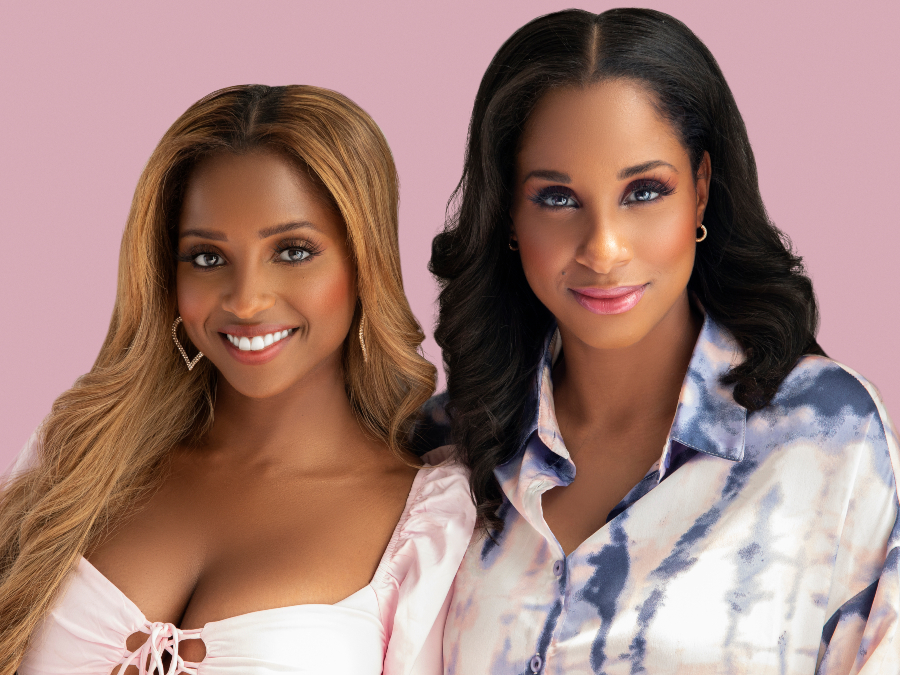Moderated by journalist and socio-cultural editor Johanna Ferreira in collaboration with Instagram, Black Is Bella was a virtual event held yesterday where viewers tuned in as Lulu Cordero of Bomba Curls, Mabel and Shaira Frías of Luna Magic Beauty, and Ada Rojas of the blog All Things Ada all chatted about what it means to redefined beauty as Afro-Latinas.
As a way to give the conversation some context, at the top of the virtual event Ferreira explained, “Even though Afro-Latinx are just as much a part of the African Diaspora, because of America’s misconceptions of race and ethnicity we’re still often excluded from dialogues surrounding Blackness and beauty. Latinidad in the US still often associate Latinas with having fair skin, Eurocentric features, and dark, straight, or wavy hair — pretty much Sofía Vergara.” Additionally, Ferreira made a point to mention “anti-Blackness continues to dictate Latin-American beauty standards.”
Down below, the Black Is Bella panelists shared personal insights on how beauty standards shaped their Afro-Latina identities and inspired the businesses they have now.

Source: Courtesy of Lulu Cordero / Black is Bella
Lulu Cordero
“In my case I have always identified as Negra,” Cordero said before adding, “I have always identified as Black and proud — Negra y orgullosa. A lot of that has to do with the community that I’m from in the Dominican Republic, we’ve done a pretty great job at preserving a lot of our African cultural traditions and heritage so there’s a lot of pride there. Also, my mom made sure to plant the seeds of self-love in me very, very, very early on in life. I’m so grateful to her because she knew that I would be growing up in a world that didn’t celebrate Blackness or women that look like us and she wanted to prepare me to be strong, love myself, and be ready for whenever someone would say nasty, disparaging things that are unfortunately — whether people want to admit it or not — a part of Dominican culture and prevalent through Latin America. It’s anti-Blackness.”
“Bomba Curls was started because of the lack of representation,” she added. Speaking about the standard of beauty she saw growing up she said, “I never saw women that looked like my mother, grandmother, or even the women on this panel. I didn’t see various hair textures or skin tones represented — and that is what I wanted to make different about my brand. I wanted to fight the stigma associated with Black hair, beauty, and skin. Now I fight to not only decolonize our community but also the beauty standards. The point of my brand and my entrepreneurship is to decolonize it all.”

Source: Courtesy of Ada Rojas / Black is Bella
Ada Rojas
“In the same way there are Black Americans, there are also Black Latinx people,” Rojas told viewers. “We are not a monolith and my experience is very different from every woman I meet. My privilege is important to recognize and understand — I have light skin and looser curls. Even though my experience is different, I still have the Black experience underneath it all.”
“Growing up my family didn’t own their Blackness so I grew up not identifying with it either,” she added. “My elders grew up in a time where claiming your Blackness in the Dominican Republic could literally get you killed. I knew that their mentality was rooted in trying to protect themselves and their family, but that mindset led to a culture that is anti-Black. It wasn’t until later in my life when I started college and began educating myself that I realized I was Black and this erasure was a part of an anti-Black Dominican culture. Although these conversations weren’t happening when I was younger, it’s a huge part of my work and my entrepreneurship now. I’m constantly trying to educate my followers and the younger generations in my life such as my nieces and nephews.”
“I use my privilege to amplify other Black experiences other than my own,” Rojas said later. “I know that the way I look gets my foot through the door but the work doesn’t stop there. When I’m approached by a major brand, I often ask questions like, ‘What other women are you speaking to? Who else is being featured in this campaign? Are there women with darker skin and different hair textures?’ They’re all important to me because I don’t represent the entire Afro-Latina community — I’m only one person.”

Source: Courtesy of Mabel and Shaira Frías / Black is Bella
Shaira and Mabel Frías
“Me and my sister grew up in the Virgin Islands,” Shaira explained of their introduction to colorism and the concept of being Afro-Latina. “We didn’t learn about segregation, racism, and the slave trade that happened in the U.S. so we didn’t grow up feeling bad about our skin tones or even know there was a difference between us. When we moved to NYC we quickly learned about those topics and that we would be divided and seen differently — solely based on our skin tones. It was a slap in the face for us not knowing that we would now be divided in so many different parts of our lives.”
Explaining how the differences in her and her sister’s skin tones weren’t an issue until moving to the U.S. she added, “Growing up without those preconceived notions led to a positive experience about our self-acceptance because we never had to think about our skin color. I didn’t even understand the conversations about mine or my sister’s skin tone when we got to the US – or why people would speak about our skin, hair, or beauty.”
For her, Mabel shared that her Afro-Latina identity was in part shaped by her experiences dealing with the beauty standards in corporate America. She added, “I worked in a corporate setting for the first 12 years of my career and I was often the only Afro-Latinx person in the room. I did a lot of educating to my colleagues in those years and I also began learning about internal data of consumer marketing. I realized there was a disconnect between the people who were featured in our campaigns and what was actually available to those consumers — there were no actual products for the people we were featuring in campaigns.”









